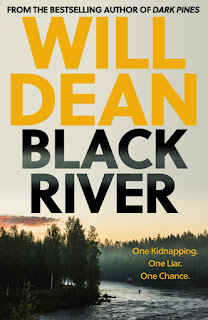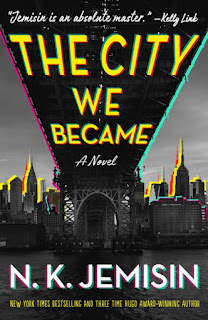 |
| Cover art by Tommy Arnold, design by Jamie Stafford-Hill |
Tamsyn Muir
Tor, 10 September 2019
HB, 444pp
Audio narr. Moira Quirk, 16 hours 50min
I read Gideon the Ninth as an audiobook.
Well. This one has me truly gobsmacked. Genuinely new and different, a cross between an Agatha Christie ruder mystery set in a crumbling laboratory (who will die last?), a dark tale of necromancy and the undead (bones! So many bones!) and far future SF it's... like nothing I'd ever read before.
Add a compulsive, mystery-driven narrative, SO MUCH COMBAT, a dash of romance and tragedy - oh, buy it, just buy it!
What's that? You want me to tell you a bit more before you part with your hard earned pounds, dollars or Euros (yes, I can dream of an international audience!).
Oh then. Gideon, of the title, is a young warrior for the Ninth House. The crumbling House, the House where all the kids died (except her and heiress Harrowhark), Keepers of the Locked Tomb, shadow cultists. All Gideon dreams of is getting out of the grave of the Ninth and joining the Cohort to fight the Emperor's enemies.
So it should be her dream assignment to accompany Harrow as Cavalier when the Emperor summons the Houses to provide him with new Lyctors. Each House is to send its best and brightest to compete for the honour... except for the Ninth, which will send Gideon and Harrow.
Oddly, this doesn't thrill her, perhaps in part because Gideon and Harrow HATE one another. And Gideon's reluctant, sulky, teenage scorn carries her through much of this book as she's forced to learn to fight with a dainty rapier instead of her trusty broadsword, to paint her face white as a Death Cultist and to remain SILENT in the creepy corridors and chambers of Canaan House, where the Lyctorships are to be awarded.
This isn't a straightforward contest, rather the Cavaliers and their Adepts are left to find their way through a maze of devilish traps and dangers to discover the dreadful necromantic secrets that constitute Lyctorhold. The tasks are set by the seemingly gentle and rambling priest Teacher who however warns them that they are IN GREAT DANGER.
And then, as they say, the murders begin...
This was a fun book to listen to. Quirk's narration is glorious, she doesn't so much present as inhabit every character, whether Teacher's wavering bonhomie, Harrowhark's aloof poshness or Gideon's ongoing teenage sulk. It's just stunning. If you want something to convince you of the value of audio, this would be a good place to begin.
Beyond that, though, Muir's writing is excellent. Despite the plethora of characters, the heart of this book is the relationship between Gideon Nav and Harrowhark Nonagesimus - two lonely, spiky women with very different places in the world, outlooks and intentions. In many ways it's one long bicker, laced with sarcasm, rancour and distrust. Yet Canaan House is so deadly, the assembled representatives of the House so treacherous and double dealing, that if there is to be any chance of getting out alive, they need to work together - and to find ways to make allies, something that comes naturally to neither.
So much fun, so much combat (the fights here are something else) and it's all going along swimmingly... then Muir somehow takes things up yet another level, bringing this book to the emotional pitch of a tragic opera, a fable or a ballad. The ending just destroyed me. If I was gobsmacked already that had me doublegobsmacked. A cold, dark universe just got colder, darker. I'm desperate for the next part, counting down the days.
For more about the book see the Tor website here.













